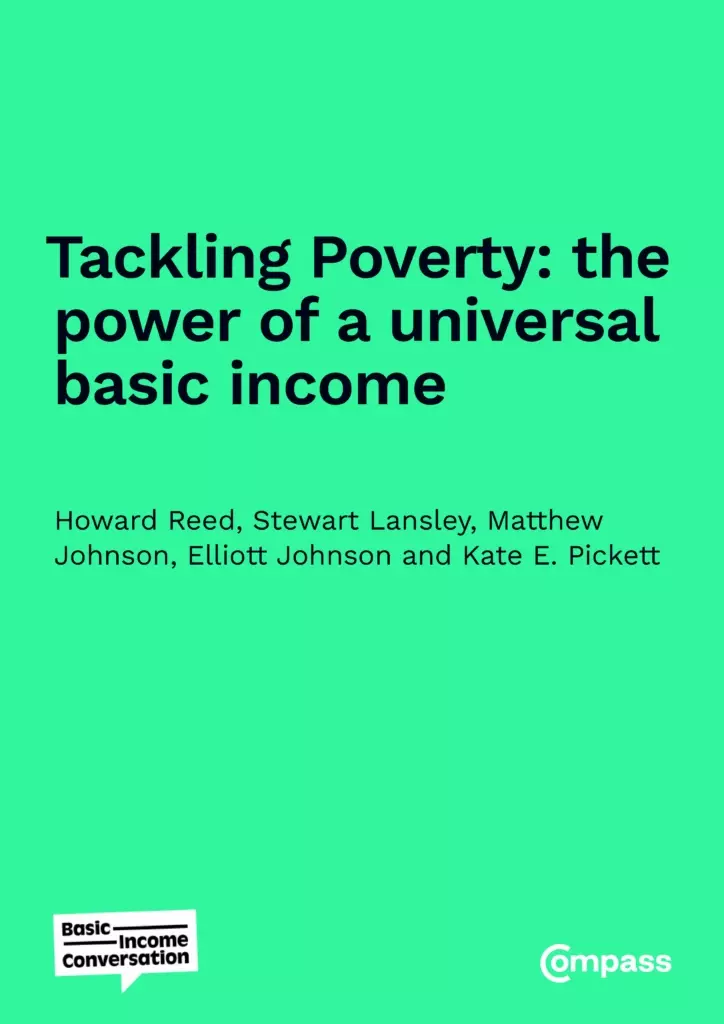Tackling Poverty
Lansley et al
"Tackling Poverty - The Power of Universal Basic Income", Lansley et al
Stewart Lansley, Howard Reed and co-authors offer a compelling and well-analysed case for basic income to remedy poverty and inequality. Three schemes of increasingly generous basic income costing £274bn, £464bn and £677bn are funded by benefit reductions of £114bn, £145bn and £167bn, and tax increases of £160bn, £319bn and £510bn respectively.
Inevitably, there are gainers and losers. In the lower cost scheme, whilst individuals in the lowest income decile unambiguously gain, and those in the top three income deciles lose, individuals in deciles 3-7 equally gain and lose, and 33% of individuals in decile 2 lose. This seems a rather fine balance. If individuals were to vote on the scheme according to the effect on their income, the vote might be close to a 50/50 outcome?
Whilst a welcome contribution, there are shortfalls in such microsimulation models of basic income.
Supporters of targeted benefits could claim that redesign of current systems to be more redistributive, with tapers defined to reduce unemployment and poverty traps, and conditionality reduced to avoid intrusion should be compared to basic income proposals and might prove superior.
Microsimulation analysis is limited to static accounting reallocation of tax and benefits to lower-income groups. As the report admits, no account is taken of the effects of this income reallocation on the macro economy. The analysis, therefore, under-reports the effect of basic income proposals. The revised income allocation needs to feed into the consumption function of a macroeconomic model to drive production, employment, investment, taxation etc to new equilibrium outcomes. Work commissioned with Cambridge Econometrics will shortly report on a fuller macroeconomic analysis of basic income schemes.
The authors are keen to demonstrate that their proposals are revenue neutral, and offer a list of 12 other sources of tax if needed, including wealth taxes and eco-taxes which need to be subjected to more careful critique. Wealth taxes are difficult to manage and become essentially income taxes determined by wealth measures, whilst eco-taxes should target reduced pollution rather than being a means of funding other initiatives.
The argument is not set in its fuller context. The authors refute the claim that technology is reducing employment, or more importantly, employment income, despite other claims and empirical studies that technology is sucking labour income out of the economy, and that this is a prime argument for basic income. The potential for funding basic income by its role in reducing household debt, and by the creation of debt-free sovereign money is not explored.
Funding basic income by benefit reduction and tax increases requires very exact and careful selection of exactly which benefits are reduced and which taxes are increased. Otherwise, poverty reduction is not necessarily achieved. Funding basic income by debt-free sovereign money unambiguously achieves redistribution and poverty reduction. More holistic and inclusive discussion and presentation are needed.
Geoff Crocker
Editor ‘The Case for Universal Basic Income'
www.ubi.org

